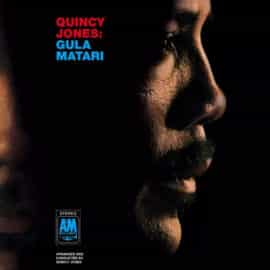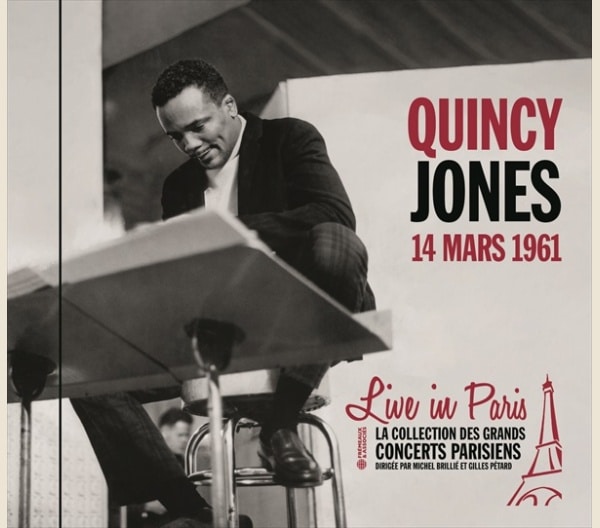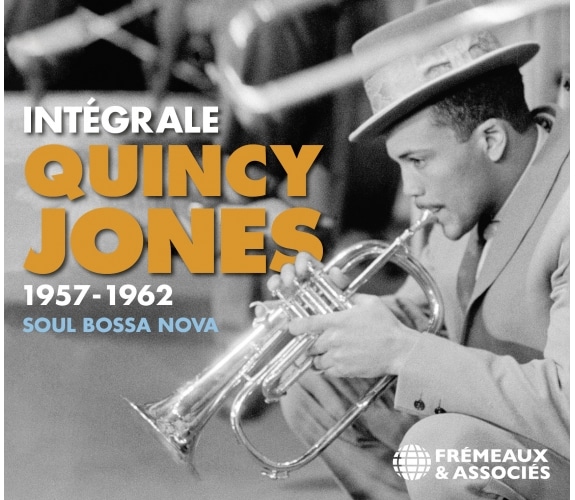
Quincy Jones (March 14, 1933 – November 3, 2024)
There are some personalities who have left a mark on nearly all our lives. Quincy Jones is one of those figures who had an undeniable influence on all 20th-century music, whether in jazz or pop. I recall being very young when I first saw his name on the cover of a Sinatra album that featured the track “Come Fly With Me.” As a little French boy, I didn’t know how to pronounce “Quincy Jones,” as back then, very few people in France spoke English.
I’d like to share with you the Quincy Jones albums that have shaped my life. Although I know that each of you has a personal discography linked to Quincy, it would certainly be interesting for us to discuss this on social media—and most of all, it would be fascinating. Here is my personal list: *Quincy Jones Explores the Music of Henry Mancini* (1964)—I was only four at the time and discovered this album around age ten; *Body Heat* (1974); *The Dude* (1981); *Back on the Block* (1989); *Miles and Quincy Live at Montreux* (1993); *From Q with Love* (1999). Of course, there are many other Quincy Jones albums I’ve enjoyed, but this selection probably reflects the ones that have had the most impact on me.
Imagine, for a moment, a musician who not only had a flourishing career throughout his life but was also a shrewd producer who rubbed shoulders with the world’s biggest stars—Ray Charles, Sinatra, Aretha Franklin, Michael Jackson, Céline Dion, Miles Davis. I’ll stop there, though we could fill an entire dictionary with his countless collaborations, surely leaving out one or two artists in the process. In truth, nothing predisposed young Quincy to such a career. His mother suffered from schizophrenia, his father was a carpenter and semi-professional baseball player, but Quincy was drawn to music from a very young age. His love for the piano came naturally at the age of eleven at a community center. Later, he joined his school’s choir, where he had the chance to try different instruments, and he didn’t hold back. He would eventually join a classmate’s swing band. After graduating from Garfield High School in 1950, Quincy studied at the University of Seattle for a semester before enrolling at Boston’s Berklee College of Music.
Quincy received a scholarship to study at the prestigious Berklee College, but soon Lionel Hampton took notice of him, and he left his studies to start performing. This was the beginning of his musical collaborations with Dizzy Gillespie. Quincy even spent a year in France working with the controversial Eddie Barclay for the Barclay label. A composer for film and television, Quincy Jones quickly became indispensable. It would be impossible to list all the awards Quincy has won, but with such a career, you can imagine the number of awards and gold records he has amassed. As a producer for both cinema and television, we remember him for the 1985 film ‘The Color Purple’ directed by Steven Spielberg and starring Whoopi Goldberg, Oprah Winfrey, and Danny Glover—as well as the 1990s TV show ‘The Fresh Prince of Bel-Air’ with Will Smith. ‘The Color Purple’ was nominated for the Academy Award for Best Picture at the 58th Oscars.
To understand Quincy Jones’s influence, I’ve left a few videos at the end of this text; you’ll easily recognize some of the people featured. Even though Quincy’s career in the latter part of his life leaned more toward showbiz than pure jazz, he will always be remembered as the one who collaborated with… or made the stars.
Thierry De Clemensat
USA correspondent – Paris-Move and ABS magazine
Editor in chief Bayou Blue Radio, Bayou Blue News
PARIS-MOVE, November 5th 2024
Follow PARIS-MOVE on X
:::::::::::::::::::::::
Review (in French): INTEGRALE QUINCY JONES – 1957-1962 – SOUL BOSSA NOVA
Review (in French): QUINCY JONES – Live In Paris 14 Mars 1961
.


